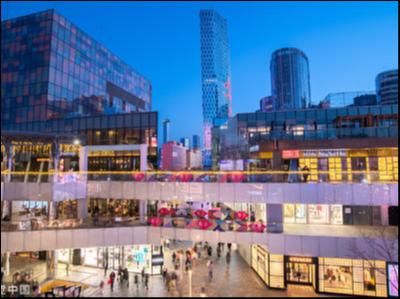
Image Source : China Visual
BEIJING, October 19 (TMTPOST) — Leasing demand in the Shanghai retail market shrunk in the third quarter, with shopping center vacancy rates rising and average rental levels falling, according to reports released by several market institutions recently.
According to Jones Lang LaSalle, shopping centre vacancy rates rose 3.9 percentage points to 13.6% year on year as consumption by business and tourist groups in Shanghai's core shopping areas decreased amid the pandemic. Shopping center vacancy rates increased slightly less in non-core shopping areas with a more stable consumer base of local residents, rising 2.3 percentage points to 12.3% year on year.
At the same time, the average rental rate of Shanghai shopping centers declined. According to market research firm Savills, the average rent for the first floor of a shopping centre in Shanghai was RMB26.2 per square meter per day in the third quarter, down 1.2% from last month and 0.9% from last year. In particular, first-floor rents in core and non-core shopping areas fell by 0.6% and 1.4% month on month, respectively.
The catering industry accounted for the largest share of leasing demand in shopping centres. According to CB Richard Ellis, the coffee, tea and restaurant area, represented by M Stand and others, accounted for 43% of the leasing demand, followed by the fashion and apparel industry with a 25% share.
In order to restore consumer confidence and promote the rebound of the retail market, Shanghai introduced a series of stimulus initiatives in the third quarter, such as issuing electronic consumption vouchers and organizing shopping festivals. According to market research firm DTZ, these measures have led to a significant consumption rebound in mid to high-end shopping centres. However, the recovery of shopping centre leasing demand is still in its initial stage, with most retail property owners still offering rent reductions and other incentives to attract retailers to move in.
According to the Shanghai Municipal Bureau of Statistics, Shanghai's total retail sales of consumer goods turned from negative to positive in July and August, but the cumulative total for the year was still down year-on-year. In July and August, Shanghai's total retail sales of consumer goods increased by 0.3% and 2.5% year-on-year respectively.






